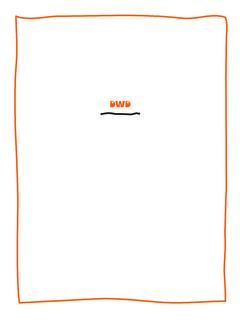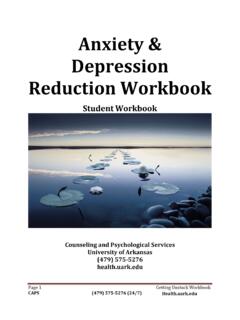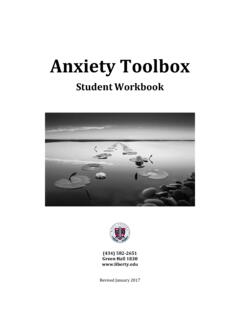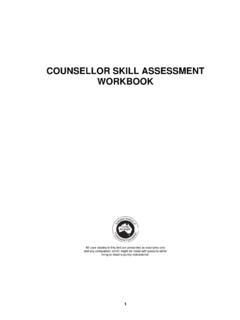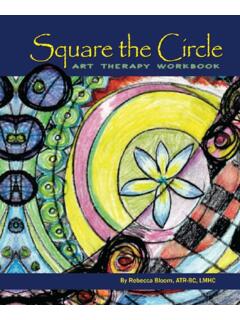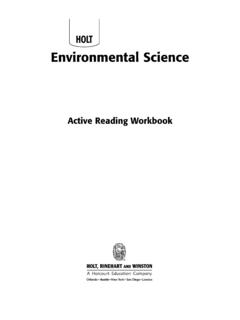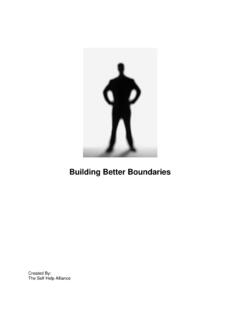Transcription of Self-Care Depression Program: Antintidepressant Skills ...
1 Self-Care Depression PROGRAM. 2ND EDITION. ANTIDEPRESSANT. Skills workbook . Dan Bilsker PhD Randy Paterson PhD. Dan is a clinical psychologist Randy is a psychologist, who works at Vancouver General director of Changeways Hospital and consults to a mental Clinic, and author of the health research group at Simon book, Your Depression Map. Fraser University. The Self-Care Depression Program is based on the experience of the authors and on scientific research about which strategies work best in managing Depression . It is intended for: individuals with depressed mood concerned partners, family members or friends who want to help a depressed individual This book is meant to provide accurate information about Depression . It is not a psychological or medical treatment, and is not a replacement for treatment where this is needed.
2 If expert assistance or treatment is needed, the services of a competent professional should be sought. Funding for this book was provided through grants from the Ministry of Health, and BC Mental Health and Addiction Services, An Agency of the Provincial Health Services Authority, Province of British Columbia, Canada. Vancouver, Canada Copies of this book can be downloaded at no cost from: or Note This publication is designed to provide accurate and authoritative information in regard to the subject matter covered. It is provided with the understanding that the publisher is not engaged in rendering psychological or other professional services. If expert assistance or treatment is needed, the services of a competent professional should be sought. Self-Care Depression PROGRAM.
3 2ND EDITION. ANTIDEPRESSANT. Skills workbook . TABLE OF CONTENTS. Introduction 1. What is Depression ? 3. What causes Depression ? 6. What can you do about Depression ? 14. More about medication 16. Antidepressant Skills 18. 1. Reactivating your Life 19. 2. Thinking Realistically 30. 3. Solving Problems 39. The road ahead: Reducing the risk of relapse 49. The story of Margaret 53. Suggested reading 54. Useful information 55. Diet 56. Physical activity 57. Sleep 58. Caffeine 60. Drugs and Alcohol 61. Worksheets 63. INTRODUCTION. epression is among the most painful and difficult of all human D experiences. It robs those who have it of energy, interest, and the will to make things better. It brings with it a profoundly negative view of the self, the world, and the future. During Depression , it seems as though nothing can change, as though you will never get better.
4 But depressed people do get better and Depression some of the lifestyle choices associated with reducing does end. There are effective treatments and self-help Depression are discussed in the Useful Information Skills to deal with Depression . Health care professionals section at the back of the book. Although medication- give Depression treatments, but you can learn self-help based approaches are discussed briefly, most of our Skills and apply them to your own life. This guide emphasis is on these other approaches: antidepressant teaches a set of antidepressant Skills you can use to Skills rather than antidepressant pills. manage Depression . Sometimes the Skills can be used on their own, when the Depression isn't too severe. We hope that the workbook will be helpful for you.
5 But Sometimes they have to be used along with treatments reading it will not be enough. For the approaches to by professionals. work, you will have to put them into practice. We have tried to present all of the strategies in a clear, step-by- The emphasis in this book is on three steps: step format that will help you to work steadily toward reactivating your life; changing negative thinking your goals. habits; and solving problems as they arise. In addition, Self-Care Depression PROGRAM 1 ANTIDEPRESSANT Skills workbook . INTRODUCTION. Take a moment now to ask yourself three questions. Mark your answers on the scales below. On a scale of 0 to 100: How much of a negative effect has low mood had on my life? 0 50 100. NO EFFECT EXTREMELY NEGATIVE EFFECT. How important is it to me to feel better?
6 0 50 100. NOT IMPORTANT AT ALL EXTREMELY IMPORTANT. Am I willing to make getting better a priority in my life? 0 50 100. NOT A PRIORITY AT ALL EXTREMELY HIGH PRIORITY. If you scored less than 50 on two or three scales, you may be considering change, but still feel uncertain. If that's the case, read the workbook and think it over. If you scored 50 or more on two or three scales, you're ready to change. You've had enough and you're prepared to dedicate some time each day to getting better. Go to the next page and let's get started .. Self-Care Depression PROGRAM 2 ANTIDEPRESSANT Skills workbook . WHAT IS Depression ? ost times when you feel down, you're not depressed. Feeling sad or low M is a big part of life and can't be avoided. When something goes wrong in your life, whether it's an argument with your partner, conflict with your boss, or a physical illness, your mood might drop.
7 Depression is not . Most times when you feel down, you're not depressed. If you feel especially sad or irritable because of this Feeling sad or low is a big part of life and can't be situation, maybe with poor sleep, not wanting to see avoided. When something goes wrong in your life, friends or family, eating too much or not enough then whether it's an argument with your partner, conflict you're probably experiencing low mood. Low mood will with your boss, or a physical illness, your mood typically go away in a week or two, especially if there's might drop. an improvement in the situation that started it. Depression is . But suppose it doesn't go away and just gets worse. 2. if you have other problems like: You might be depressed: big changes in weight or appetite;. not being able to sleep enough or sleeping 1.
8 If your mood is very low or you have almost no too much;. interest in your life almost everyday, and this feeling that you are always restless or feeling goes on for weeks; AND slowed-down;. thinking that you are worthless or guilty;. feeling really tired much of the time;. feeling numb or empty;. having a lot of trouble concentrating or making decisions;. thinking about death or suicide. Self-Care Depression PROGRAM 3 ANTIDEPRESSANT Skills workbook . WHAT IS Depression ? The two most common types of Depression are called mild Depression and major Depression . Each of these includes the same kinds of problems (the mild kind. Your family physician, a psychiatrist ones we've listed above) but major Depression is more or a psychologist can tell you whether you have severe. Usually, when a person gets depressed, it's the a Depression .
9 FEELING OKAY. m o od . MILD D. LOW. ed . pen MO. hap lo w EP R. OD. F ee t h ing t he ES S. ling sad because some ION. of Th ut o es et . p ty a dn to g hard em es s MA. g oe s o RD n too long. Very JO. or b E PR um ES S lin gn IO N ee M ise r y, despair, it goes on and o n. F. Self-Care Depression PROGRAM 4 ANTIDEPRESSANT Skills workbook . WHAT IS Depression ? A few observations about Depression .. Depression is hard to diagnose on your own. time, and more than 15% of adults will be depressed Our moods affect our judgment of ourselves. So it's at some time in their lives. often hard to judge whether we are really depressed. Usually it takes a trained professional to make Depression is not a sign of weakness. the diagnosis. Many capable, intelligent, and extremely accomplished people have been depressed.
10 If you have Depression , you are not alone. Being depressed does not mean that you have More than 4% of adults are depressed at any given a weak personality or a character flaw. If you think you have Depression .. If you think that you have Depression , it is important professional. This can be your family physician, a that you find help. The Skills in this workbook are psychologist, psychiatrist or other mental health meant to help you with your Depression , but you professional. They can help you with a number of shouldn't have to do it alone. Getting another opinion different treatments for Depression . A good thing from someone you trust can help you understand your about these treatments is that they work well problems or put them in perspective. If you continue alongside Skills you learn from this workbook .

